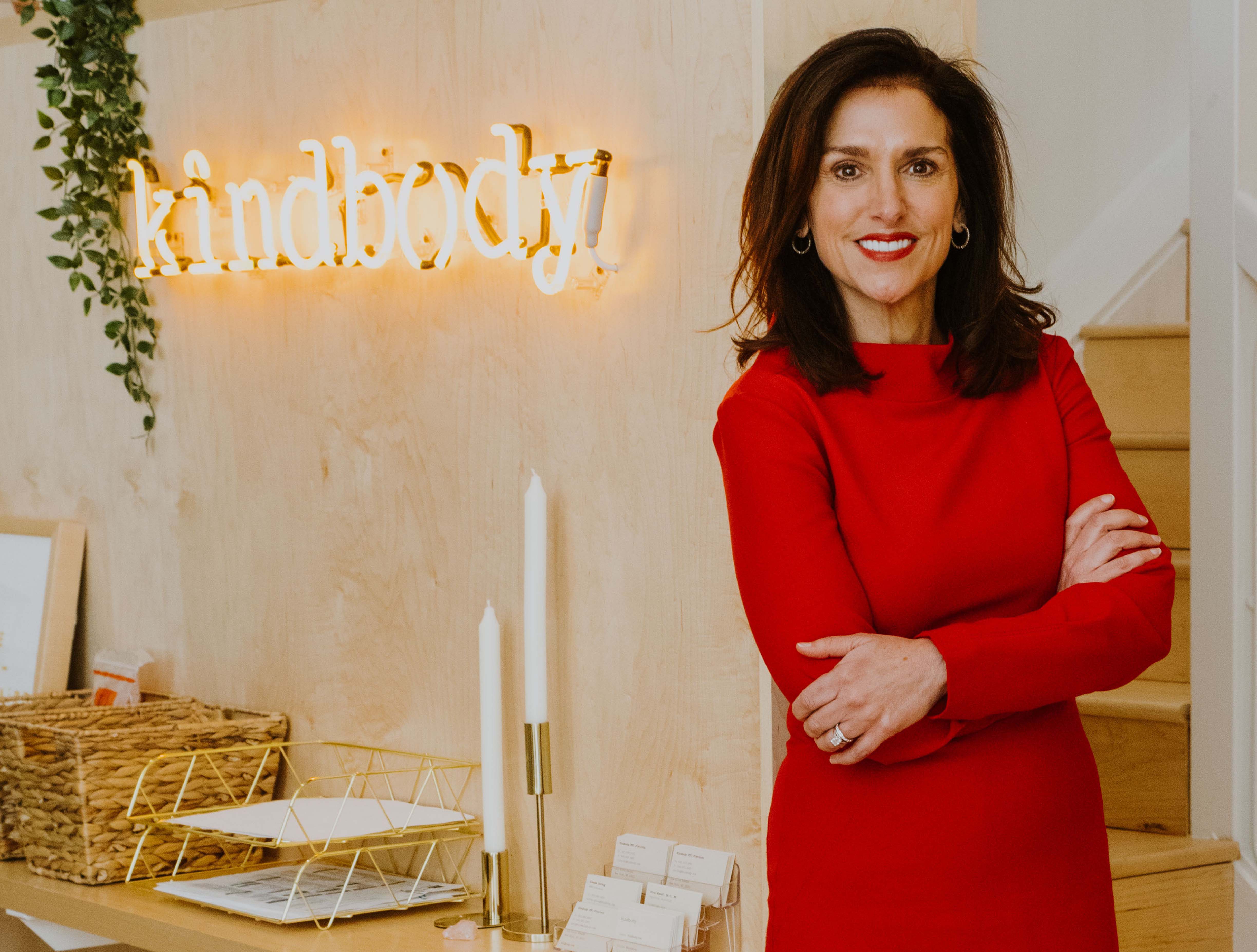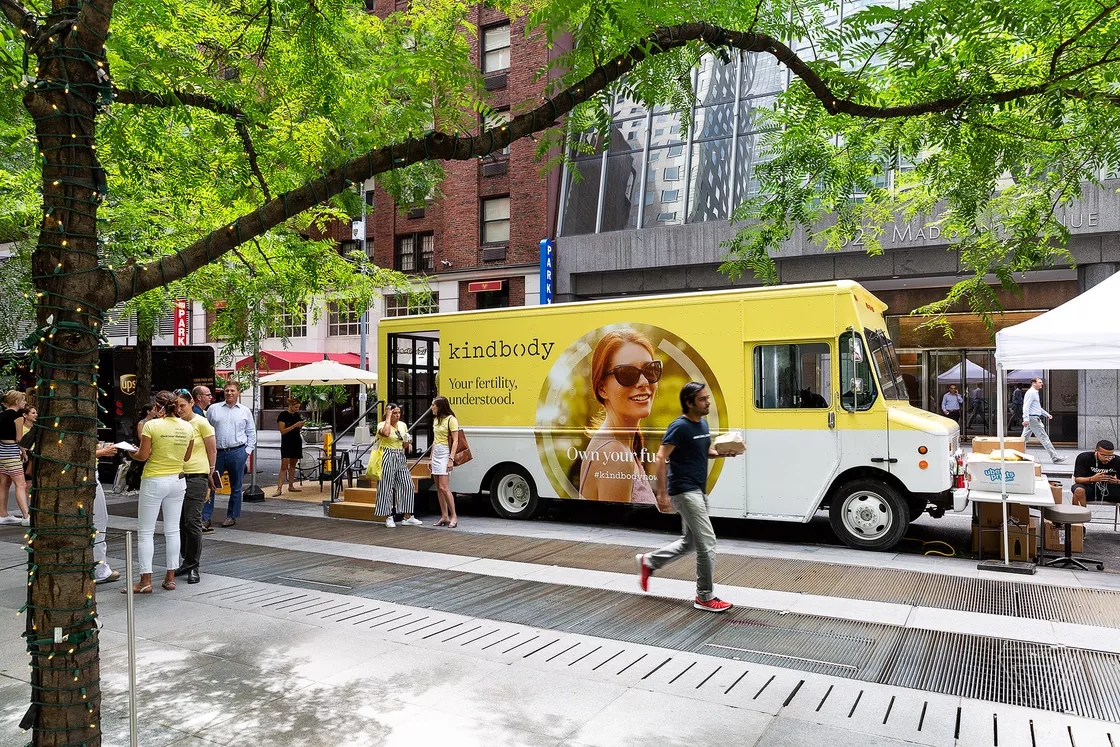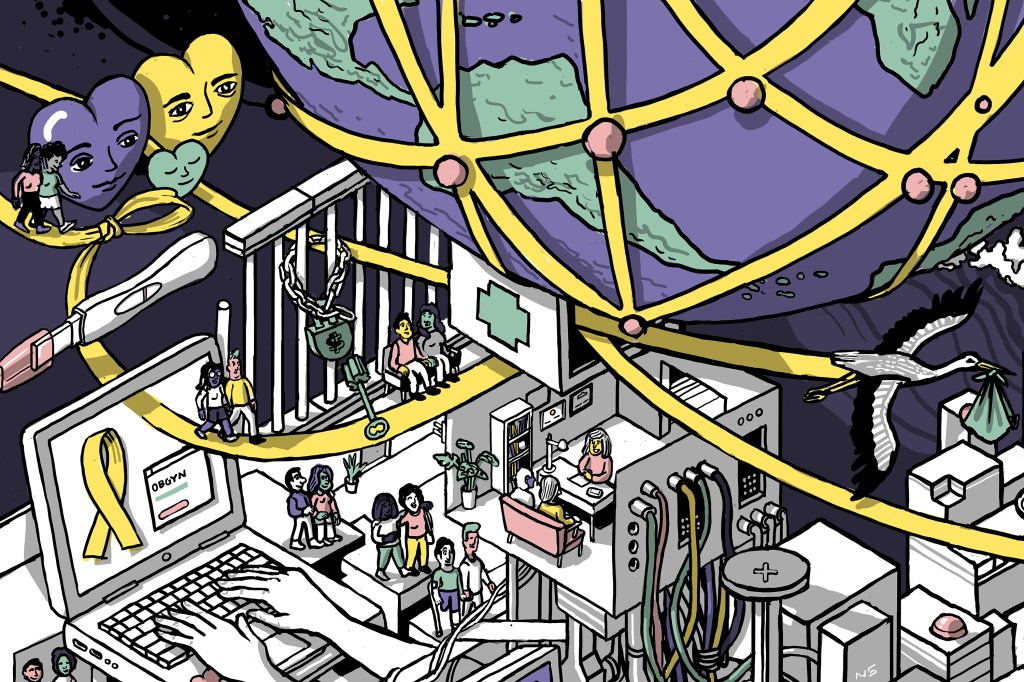When the topic of fertility comes up, we often hear hushed tones discussing someone else’s or their own journey through infertility. Sure, celebs have begun talking about it, but we’re rarely taught about it in health class. Nor is it typically a topic of discussion over holiday hors d’oeuvres.
At a time when the world is fighting inequities around health and welfare, reproductive healthcare continues to be largely ignored in the conversation. The science and medicine around fertility are presented with an air of complexity that, more often than not, leaves patients feeling lost, scared and alone.
To change a system that’s reactionary instead of proactive is far from simple. To even make marginal improvement, one would need to thread the needle of education and accessibility — and perhaps place compassion over profits and growth.
Kindbody appears to be one of the few startups in the space well on its way to tackling this behemoth of a challenge. Its approach is also drastically different from most fertility service providers — it has savvy, intelligent marketing; a tech-enabled and fully virtual care facility; a focus on compassion; and ample customer education to help patients feel involved and understood.
The company today has 12 outlets in 10 cities in the U.S. and is fast ramping up its scaling efforts with over $154 million raised so far. Aiming to be a one-stop shop for fertility, gynecological and wellness services, Kindbody provides services to heterosexual couples, single mothers by choice and members of the LGBTQ+ community.
Gina Bartasi launched Kindbody, her third fertility startup, in 2018, after her own journey helped her understand just how broken and antagonistic the system is. With an eye toward inclusivity, holistic care and reducing the friction in the patient process, Bartasi and her team have created one of the few companies in healthcare making a difference.
In this first part of this TC-1, we’ll explore Bartasi’s journey, the problems in the fertility space, the difference that clear pricing and communication can make, and how eliminating the white coats and display of degrees around the offices has helped Kindbody become one of the preferred destinations for fertility treatments.
Addressing how we approach fertility
Bartasi originally ran a media company in Atlanta, but sold it after getting married and relocating to New York City to be with her husband. When she was 38, she and her husband decided to start trying to have a baby, and, like many women a decade ago, were met with an experience that was far from the warmth and care one would expect at such an intimate time.
“The first thing I noticed on my fertility journey was that every physician I saw in the fertility industry was an older white male,” she told me. “I was treated as a subordinate, like the doctor was all-knowing and our mission was to do exactly what he said, even though I was paying $25,000, whether or not I had any success.”

This experience prompted her to launch her first fertility startup in 2008, Fertility Authority, a content platform and fertility clinic review website for those facing infertility.
A few years later, in 2015, the company was renamed Progyny after it was bought by Kleiner Perkins and TPG Biotech. The content platform was maintained, but the company’s focus pivoted to selling fertility benefits to self-insured employers.
While a fertility insurance solution seemed like a great idea, the reality of how healthcare is set up in the U.S. made for some significant roadblocks.
“I learned that very quickly through the help of these employers — self-insured employers don’t buy their insurance through insurance companies; they pay their insurance claims themselves,” Bartasi said.
American companies used to be fully insured, and the insurance provider would make a commission on top of what was paid to the doctors. This is how Progyny was set up, too, and Bartasi learned that employers were no longer looking to pay that commission.
“The employers said, ‘I want a way to buy fertility services directly from the doctors,’” she said.
Between the reviews patients had left on Fertility Authority and the complaints of patients through Progyny, as an insurance company, these gaps were visible, but there was little the company could do.
“There were just too many complaints from patients that as a call center at an insurance company, you couldn’t help. So patients would call, and they would complain about the physician leaving them in the waiting room, or not returning their call, or taking a long time to answer the phone. But you cannot effectuate change; you couldn’t really do anything,” Bartasi said.
The problems didn’t stop at just bedside manners. A call center could not fix anything, be it nitrogen tank failures or staff not understanding the purpose of hormonal shots before egg freezing.
“Only a doctor can affect your patient experience — whether or not you had a good experience,” Bartasi said. “And only a doctor can affect whether or not you have a good outcome.”
Bartasi says she learned a lot from the employers Progyny was trying to sell its benefits solutions to.
“They’d say, ‘The patient has to go over here for the therapist and over there for primary care, and over here for their subspecialty care — just create one solution. Just take care of my member. Take care of her from pre- to postpartum, get her through maternity leave and return her to me,’” she said.
Barbara Collura, president of the nonprofit organization Resolve, which aims to help people experiencing infertility, explains the problem succinctly: “For the longest time, the only real place that anyone could get IVF insurance coverage was through a standard payer, whether that was Anthem, United Healthcare or Blue Cross Blue Shield.”
Bartasi ultimately realized that employers wanted one holistic women’s healthcare attractive enough to retain all of their employees. She also found employers wanted to go directly to the provider rather than through a third party like Progyny.
These discussions with employers and patients planted the seed of an idea that would eventually grow to become Kindbody.
But Bartasi didn’t want to start a company that would run on the same rails as every other fertility service, and she knew she needed experts in the field to really make a difference.
Rebecca Silver was Bartasi’s first phone call. They met six years ago at a conference in Baltimore. It was in the back of a cab that Bartasi told Silver how much she loved her work.
“She was working for another friend of mine, her fertility company, and I knew Rebecca’s dad, and so I said to her, ‘Oh my god, you work for Ant Morris and Jean Peaks and your dad is Lee Silver? I can’t recruit you now, but I’m in love with you and we’re going to work together at some point,’” Bartasi said.
And that’s what happened. Silver would be Kindbody’s first hire. Silver eventually left Kindbody and is now senior vice president of marketing at LetsGetChecked.
Bartasi also reached out to Dr. Fahimeh Sasan, an experienced board-certified OBGYN, who was her gynecologist throughout her own fertility journey.
“Gina has twin boys who are now 10 and are a product of IVF. I was her doctor,” Dr. Sasan, now chief innovation officer at the company, said. She’d consulted on one-off projects with Bartasi in her other startups, but came fully on board with Kindbody as its founding physician and chief medical officer of obstetrics and gynecology in June 2018, just months before its August 2018 launch.
Bartasi would also hire Joanne Schneider; Shilpa Patel, now the chief business and legal officer; and Jeannette Norris, currently the senior director of expansion operations.

Build it and they will come
Kindbody started by focusing on fertility services, intending to establish a nationwide network of both pop-up and brick-and-mortar women’s healthcare facilities.
Bartasi raised an initial $2.1 million from the CEO of Phosphorus, Alexander Bisignano, to start off in 2018. Part of those funds would go toward Kindbody’s incorporation, and some would be used to launch a mobile Anti-Müllerian hormone testing event in the Flatiron area of New York City. Silver, who was Kindbody’s marketing director, focused her efforts on promoting the event on Instagram.
“I remember all of us sitting at a table in the weeks preceding, saying, there’s no way women are going to come and get their blood drawn in a van parked on the street in Manhattan of a company they’ve never heard of,” Dr. Sasan recalled.
They went on with it anyway, and the response was far better than anyone at the company had expected: 200 women showed up the first day, and the team ended up running out of supplies.
“Women came in, saw it, and then would go upstairs and tell their law firm colleagues or whoever was around at their offices,” Dr. Sasan said. “The resounding message that we got from those women was, ‘Oh my gosh, I’ve been wanting to check my fertility. This is something I’ve been curious about, and I just didn’t know where to begin.’”

With a successful first day in the books, Kindbody operated temporarily out of an existing fertility office. “Our flagship in New York, which is on 102 Fifth Avenue, is a landmark building. There were delays because of its landmark status that we hadn’t foreseen.”
While temporary, the office had the signs of what Kindbody would turn into: There were no degrees on the wall and no one wore a white coat. The general air was more pleasant than a typical clinic, more reminiscent of a wellness center than a medical facility.
Another seed round netted $4.8 million in March 2019, and Kindbody was able to start offering benefits solutions to employers by April.
Kindbody also saw a ton of press from that initial event and throughout the year. “Every news outlet ended up doing stories about us doing this free hormone test, about egg freezing, and this food truck turned into a mobile [office]. It was really interesting,” Dr. Sasan said.
Kindbody would take the mobile event on the road that year to San Francisco and Los Angeles. “By the time we got to the third city, people were like, ‘Oh my god, I heard about this from my friends in New York’ or wherever,” Dr. Sasan said.
The positive press and reception meant the time to expand was coming sooner than they initially thought. Soon, the company would open outlets in Santa Monica and San Francisco.
It also meant more funding: The company raised a $15 million Series A round led by RRE Ventures and Perceptive Advisors that April.
Delays related to the office’s landmark status, however, made the wait longer than they had anticipated, and the team didn’t move into their flagship clinic until September 2019.
Customers, though, didn’t seem to mind the changing addresses. Business was booming, and the company would become profitable before COVID-19 struck, shutting down their clinics.
The virtual care pivot
When Kindbody launched, Bartasi and her staff were a little unsure if patients would actually engage in virtual care. But COVID-19 barely disrupted the desire for fertility services, dashing those concerns.
“There are just some things related to subspecialty care, like family building and fertility, that have to be done in the clinic,” Bartasi said. “We do more virtual appointments as a result of COVID. As a digital-first, technology-native company, we would have done that anyway, but I certainly think COVID separated that permanent state of doing more and more consultations and assessments virtually.”
The pandemic also changed the face of fundraising for the company.
“Before COVID, you had to get on what’s called a roadshow. You had to get off the plane and you had to pitch investors, and it was one after another,” Bartasi recalled. “You had to travel in between the meetings, and even if you had all these meetings lined up on Sand Hill Road, you still had to get on their Wi-Fi and get your deck up and all of that.”
During the pandemic, the travel stopped and subsequently changed the way Kindbody pitched, which made for a far different experience.
“Raising money through COVID has been incredibly more efficient, because there’s no travel involved. You can still tell the same compelling story, except you’re doing it via webcam instead of sitting in person,” she said.
The proof is in the pudding. In June 2020, Kindbody raised a $32 million Series B round led by Perceptive Advisors, and in June 2021, the company raised a $62 million Series C round led by Theresa Sexton, managing partner of Claritas Health Ventures, and brought in new investors Bramalea Partners, Monashee Investment Management and Eldridge.
Although Bartasi believes the intersection of tech and women’s health is a hot space for investors, she also thinks the success of her other fertility companies, including her past startups, is part of the equation.
“I think historically, investors thought women’s health and fertility was kind of this niche audience,” she said. “Because Progyny has done so well in the public markets — it’s now worth $5.5 billion after just six years of existence — more sophisticated investors are looking to place bets and write big checks on other businesses that look similar to it.”
Kindbody itself is making big bets. The company acquired Vios Fertility Institute, a network of fertility clinics, which doubled its clinic footprint to 26 and added headcount and expertise. The company plans to expand to 40 clinics throughout the U.S. by the end of 2022.
In January 2022, the company launched Kind-At-Home, an at-home fertility testing service for both men and women. Other products in the pipeline include additional preconception, pregnancy and postpartum products, as well as a sperm analysis kit.
Having to expand to meet demand, though, is Kindbody’s biggest challenge, Bartasi says.
“A banker came in recently and told us this. He said, ‘Gina, you have the Shake Shack problem.’ He said, ‘They couldn’t build fast enough to handle the demand.’”
Kindbody is seeing this mushrooming demand in large part due to how it approaches fertility and care, and, as we’ll see in part 2 of this TC-1, it’s also because of how it makes the fertility journey seamless and painless for its customers.
Kindbody TC-1 Table of Contents
- Introduction
- Part 1: Origin story
- Part 2: Business and marketing
- Part 3: Wider issues
Also check out other TC-1s on TechCrunch+.






























Comment